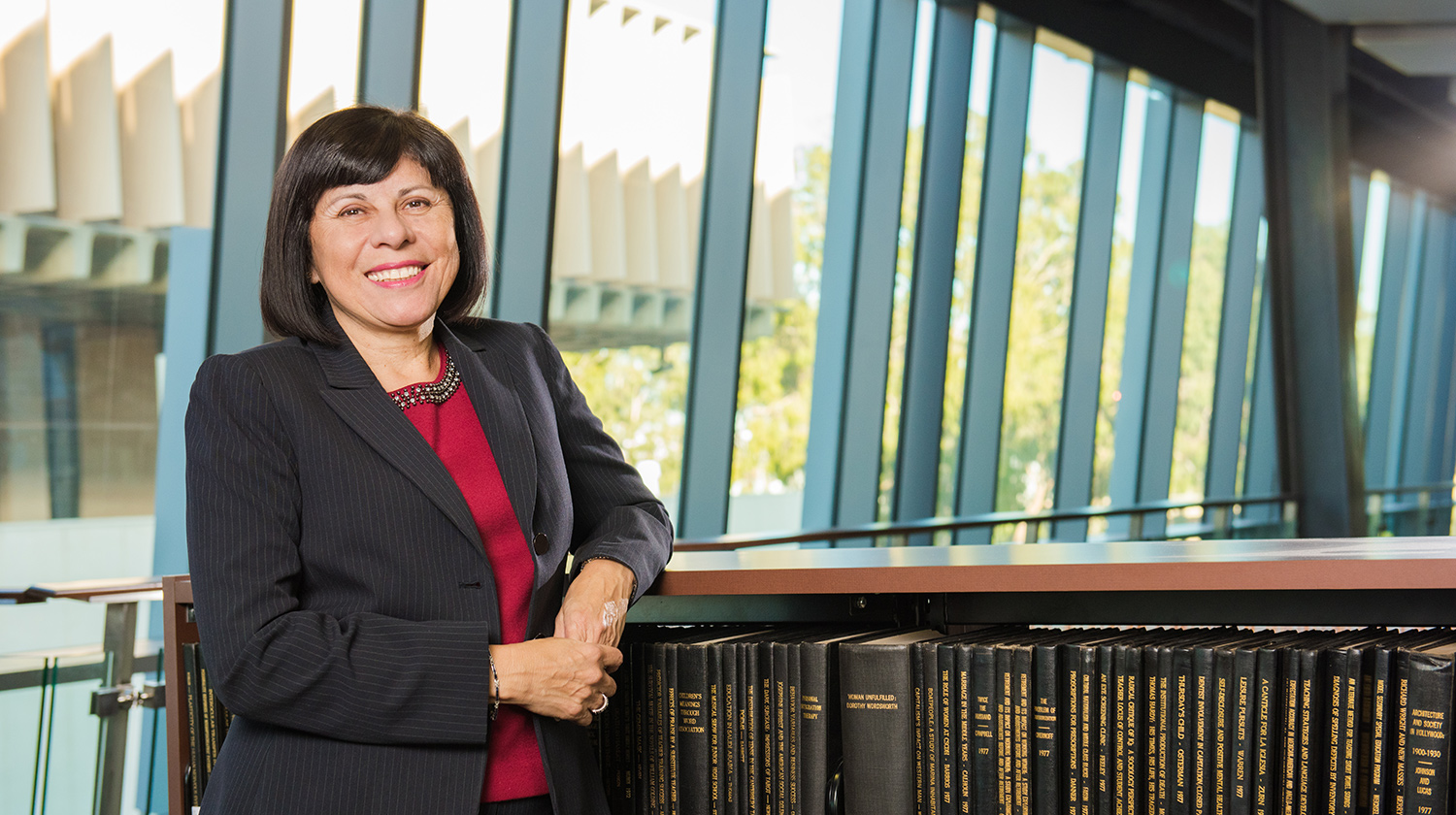
Maria Villa was “born with a strong sense of justice,” but it wasn’t until she witnessed unfair actions against her parents’ family business that she decided to follow her convictions.
Villa was in her senior year at CSUDH at the time, working in her parents’ stretched canvas manufacturing business in Torrance and contemplating graduate school to earn an MBA: “Seeing how my parents were taken advantage of at times by customers and vendors who knew how to work the system made me want to become an attorney so I could help small business owners stand up for and learn about their rights,” says Villa, who earned a Bachelor of Science in Business Administration from CSUDH in 1982 and a Juris Doctor from Loyola Law School in 1986.
True to her earliest principles, Villa’s career has been marked by advocacy for those less fortunate. For the past 26 years, Lathrop & Villa, the law firm she launched with her husband, has focused on appellate law, representing indigents in criminal appeals and capital cases.
Along the way, her beliefs also began to drive a passion for helping elevate Hispanic lawyers to prominence, particularly Latinas who have made significant inroads as attorneys but still face sexism in the profession today. “Many Latina lawyers are mistaken for the interpreter, clerk, or a paralegal in the courtroom, and they seem to be the last profession many people think of when seeing a Latina in the courtroom, even one dressed in a suit and carrying a briefcase,” says Villa. “But let me tell you, female attorneys are tenacious, compassionate, have a strong work ethic, and the ability to juggle one’s work and home life.”
Among Villa’s many efforts to support and empower Latina attorneys was the formation of the Latina Lawyers Bar Association (LLBA), which she and several of her colleagues started in 1997. “We formed the Latina Lawyers Bar Association to address issues which were always being pushed to the back burner regardless of whether there was a woman president of MABA (Mexican American Bar Association), or the number of women in leadership positions in the association,” says Villa, who served as president of MABA at the time.
During the end of her term as president, Villa recalls a number of male MABA members wanted to curb the trend of female presidents of the association. She says they ran a young male law associate from one of the member’s firms as a last-minute candidate, brought in more senior members to vote, and changed the outcome.
“We were disheartened by this coup and felt that our issues were never going to get addressed through MABA,” says Villa. “Less than two weeks later, nine of us organized and made the decision to form LLBA while sitting in my conference room.”
Today, the LLBA provides its members a “community of support” accompanied by resources and tools to reach their professional potential through every stage of their careers. The organization also supports female law students with scholarships, and offers mentoring for new lawyers.
Story featured in the fall 2018 issue of CSUDH Magazine
Villa’s many contributions to the legal profession has made her a role model for Latina attorneys. She is the first Hispanic attorney elected to the State Bar of California’s Board of Governors, and from 1997 to 2000, she served as Southern California deputy regional president of the Hispanic National Bar Association, where she holds a lifetime membership. In 1998, Villa and her husband endowed the Loyola Law School Maria D. Villa Scholarship, which provides annual financial support to deserving Latina law students in perpetuity.
“Witnessing firsthand the extra hurdles that Latinas face prompted my law partner and husband to name the scholarship after me instead of our firm,” Villa says.
Through the years, Villa has remained humble about her many successes and willingness to lead the fight for Hispanic attorney rights, but she has been extensively recognized for her accomplishments. But among her many honors, receiving the Mary V. Orozco Abriendo Caminos Attorney of the Year Award from the LLBA in 2004 makes her proudest.
“It was an award we founders created in honor of the first Latina licensed in California in 1962. Mary was a trailblazer, and one of the uncredited founders of MABA, and when we created the award, I never envisioned that I would one day receive it!” says Villa. “It was extra touching for me to be recognized by women I had helped in a small way during their journey–those who are now not only attorneys, but also leaders in our profession.”